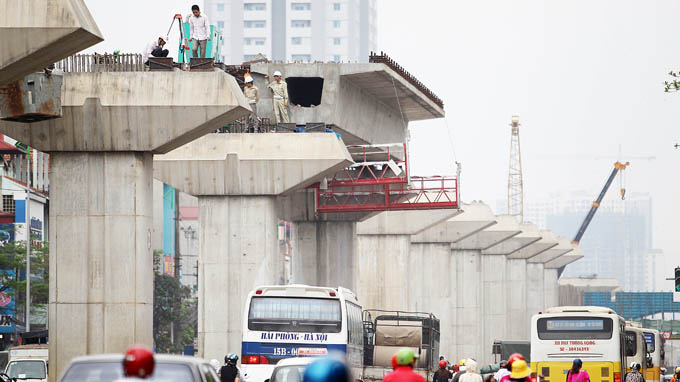Vietnamese mechanical engineering companies have almost no chance to join in billion-dollar projects on their home soil if the Chinese contractors have won tender for them, industry insiders complained at a meeting on Friday.
While other international contractors have allowed Vietnamese firms to be in charge of several parts of a project, it is not the case for the Chinese companies.
Besides sending their own workforce to Vietnam, the Chinese contractors “would bring even the Chinese-made screws to the country,” Nguyen Van Thu, chairman of the Vietnam Mechanics Association, told the event in Hanoi.
The meeting was held to summarize and review the implementation of a strategy for mechanical engineering development in Vietnam from 2003 to 2013.
At the project to expand the Pha Lai thermal-power plan in Hai Duong province, which began in 1998, the Japanese contractor has subcontracted Vietnamese businesses to be in charge of making the steel structure for the facility.
“But when the Chinese came, they brought even the screws with them,” he added.
Over the last ten years, the Vietnamese mechanical engineering industry only managed to meet 32.5 percent of domestic demand, the Ministry of Industry and Trade, which organized the meeting, reported.
In 2006 the country had to import US$8.7 billion worth of machinery, and the figure rose nearly threefold to $24.8 billion last year, according to the ministry’s statistics.
From 2003 to 2013, international contractors have won tender for 17 out of 20 thermal-power projects in Vietnam, and 15 of these tender-winning firms are Chinese, said Nguyen Chi Sang, head of the Mechanics Research Institute.
“No piece of equipment of the projects carried out by the Chinese contractors is made in Vietnam,” Sang, who holds a Ph.D, added.
The average localization ratio for the said thermal-power projects is a modest 7 percent, according to Sang.
Meanwhile, at the hydropower projects contracted by Vietnamese companies, the rate is as high as 30 percent, and even 90 percent at the Son La and Lai Chau facilities.
Similarly, Chinese firms have been the EPC contractors for 23 out of 24 cement projects in Vietnam over the last decade, Sang added.
Under an EPC (engineering, procurement and construction) contract, the contractor designs the installation, procures the necessary materials and builds the project, either directly or by subcontracting part of the work.
“But there are no Vietnamese subcontractors at these Chinese-built projects, or a zero localization ratio,” Sang complained.




















































